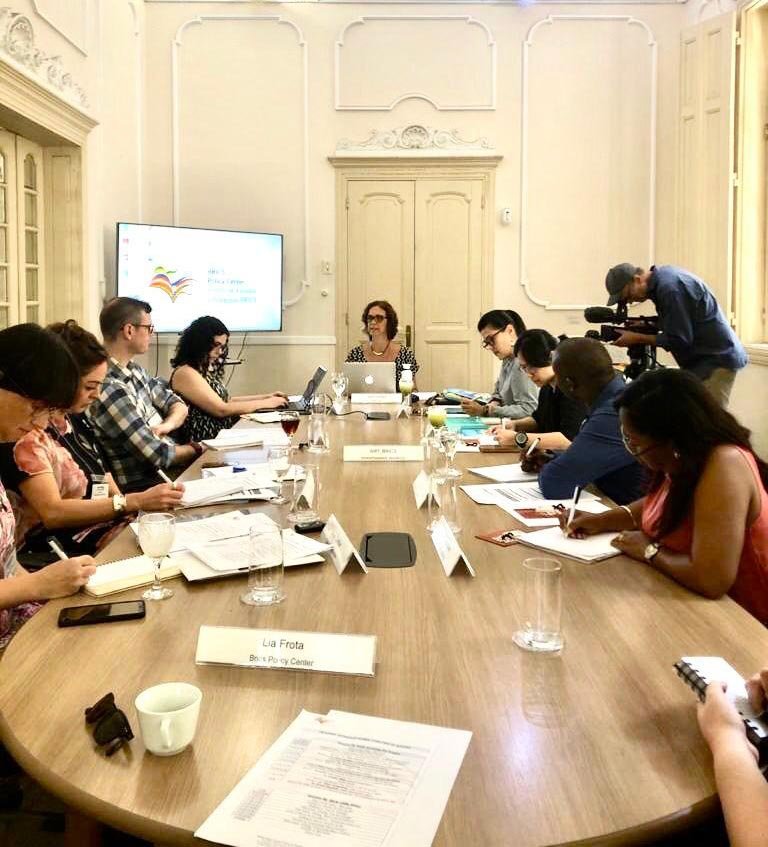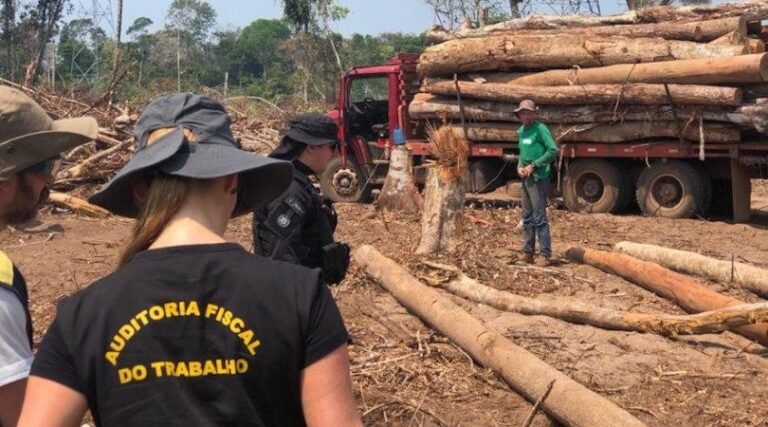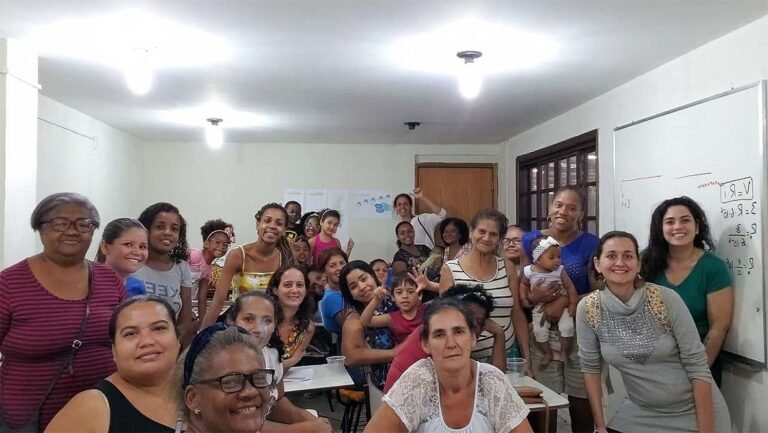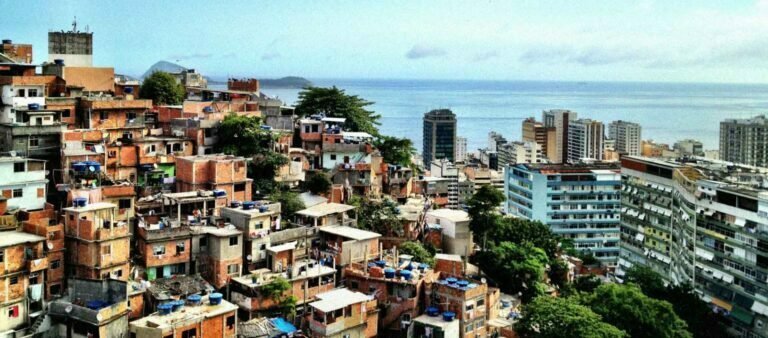And where did we come from?
beGlobal Network was born through a collective effort to create a hub of cities engaged in the fight against modern slavery and human trafficking in global cities. This happened, particularly, because while Silvia and I, from the Modern Slavery Research Center at BRICS Policy Center, at PUC-Rio, in Rio de Janeiro, Brazil, were reflecting on causes and consequences of modern slavery worldwide, alongside Alison Gardner, our colleague from the Rights Lab, at University of Nottingham in the United Kingdom, we noticed that even though we have an apparent distinct background, history, socioeconomic context, and are from countries that have been legally criminalizing modern slavery for decades, we still struggle with contemporary slavery.
While Silvia and I focused our study on favelas and underprivileged people, Alison was studying, at the time, place-based approaches methodologies. Therefore, the understanding of how a city perceives modern slavery and develops fighting mechanisms seemed appealing for all three of us. Then, the precursor of the beGlobal Network was called Project Global Cities Free of Slavery, and its goal was to put together four different cities, from four different countries to discuss their realities, success and difficulties while trying to tackle modern slavery locally.
We were able to interpret that modern slavery is a widespread problem, that might affect all the world, regardless of a country’s income level, when discussing our local realities and comparing cases, we came across other relevant finding: people who are vulnerable to modern slavery might be living under similar condition.
Then we reflected on how could we, as an international group of researchers collaborate to the international field of modern slavery studies? How could we produce relevant findings and contemporary reflections? Maybe by focusing on the local, city-level initiatives, and the municipal challenges, we could see something relevant to contribute to the construction of knowledge and policies.
The Project:
Once we got acquainted with our respective studies and institutions, planned a presidential event (this was before Covid-19) in Rio de Janeiro, Brazil, to discuss local realities, legislations, knowledge, and experience exchange and local initiatives. This was to be followed by events in all member cities and release of four short documentaries, each focusing on a specific member city.
Rio de Janeiro’s part of the project happened. Weeks before the Covid-19 pandemic reached its global peak, the Global Cities Free of Slavery project held the event in the Marvelous City. Even though we were aware of the sanitary risks, we could not fathom the dimension of what it would become. For in January 2020, it was common sense that it was not supposed to end up the way it did. We had meetings with multiple relevant stakeholders from the anti-modern slavery agenda in Rio de Janeiro, as well as non-governmental organizations, we had internal discussions with deep reflections and comparisons of our realities and, of course, a field trip to experience the favela.
During the field trip, the group of researchers visited Morro da Providencia, the first favela of the country, and a local initiative called Cooperativa Maravilha. This is a group of empowered women who decided to break the vulnerability cycle and protect their own rights. These women are collectively working to build a sustainable and reliable business that not only respects human rights, but it is also empathetic to women-specific issues such as motherhood and domestic violence. Also, Morro da Providência is extremely relevant to the Brazilian slavery history, because the area includes the Port responsible for receiving over one million black slaves trafficked from Africa to work in Brazil.
While seeing in Morro the reality of people who were living under vulnerable conditions, we were able to reflect and question whether a specific variable increase of decreases a person’s vulnerability to experience of be subjected to modern slavery. Also, while we were seeing so many local initiatives in the favela working toward social justice and protection of rights, i.e. unfulfilled responsibilities of the State, we thought about the relevance of place-based initiatives in the fight against modern slavery. Are they victims, survivors, or are they both?
Post Rio de Janeiro Workshop
It is not news that the world changed after March 2020. With the sanitary crisis raised by Covid-19, all the travel plans that the project had were suspended due to the imminent risks that it would impose on the researchers. Therefore, we had to remodel the project to make it as resourceful as it would have been if Covid-19 was not an issue. From 2020 to 2021, we worked towards the strengthening of local initiatives in each of our countries, giving voices and shedding light on activities that are constantly overlooked. For that, we’ve decided on the creation of four localized reports that had as the main goal the investigation of social determinants that could make people more or less vulnerable to modern slavery. This decision was the result of a comparative discussion within each of our context. Whether we were living regardless of the realities, the problem of modern slavery was present in all contexts. Why is that? What makes such different countries and people suffer from such similar challenges? These diagnoses can be found here.
Understanding the importance of those four studies, Rio de Janeiro’s team joined to compare the studies, and problematize about some factors that were perceived as relevant social determinants to modern slavery in all cases. This effort resulted in a book that is soon to be published.
Further along the months, Eduardo Lerina, the moviemaker responsible to create four short documentaries, specific to each member-cities, had to change the approach, once traveling wasn’t a possibility anymore. Now the project is up to deliver one medium-size documentary that not only shares those forementioned similarities and differences but also problematizes modern slavery in a broader context.
Last, but not least, the project Global Cities Free of Slavery, especially its changes due to the Covid-19, made the beGlobal Network possible.
Meet the beGlobal Network
The beGlolbal Network is an international engagement of actors, actresses and general stakeholders, including NGOs, international organizations, governmental organizations, civil society, universities, etc. It is the direct result of an international project that aimed for the fight against modern slavery and human trafficking in the world.
Reflecting on one of the major contributions of the project, beGlobal has the goal of providing an amicable space for discussions and investigations on the issues related to decent work and human rights in general. Through the network’s engagement, we were able to understand that it is fundamental to perceive the situation focusing in the local area.
Therefore, by sharing space with local initiatives, hearing and learning from them, we aim to enrich international debates to make it possible to construct sustainable public policies to combat modern slavery and human trafficking in the world. Also, we believe that it is only through debates centered on and with the locals, the individuals, and the survivors, that we might come across a sustainable solution that properly reflects the challenges of such complex reality.
Our logo reflects precisely what we intended to build with the network. The disposition of the represent the world map, and from them you can see three talking balloons, as if they were talking. The colors blue and yellow reflect the dawn and the dusk, the new and the old, the fresh start and the ending. Ultimately, it is the cycle of dialogues on human rights initiated by people, for the society, because only when you belong, you can be free.




